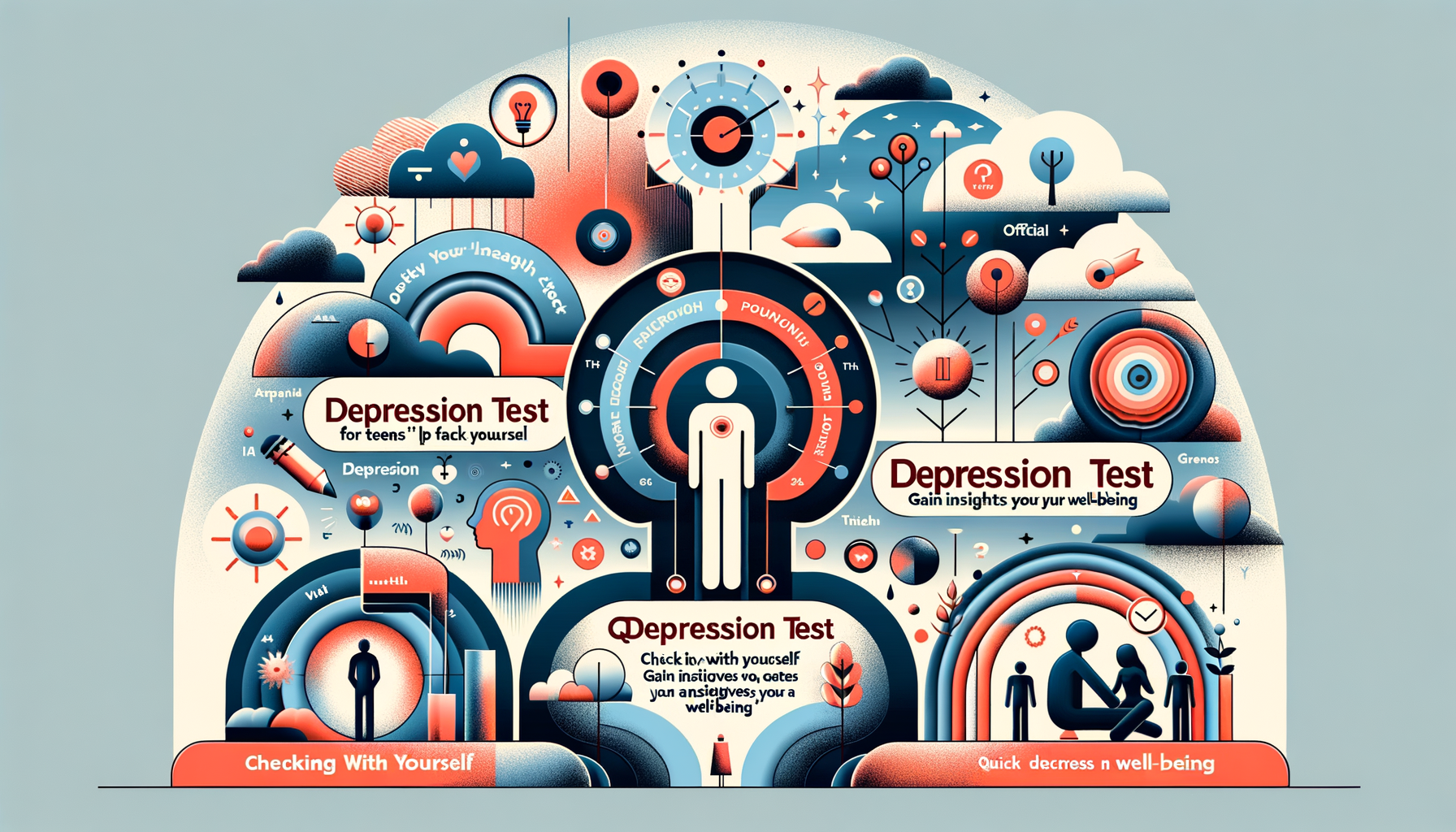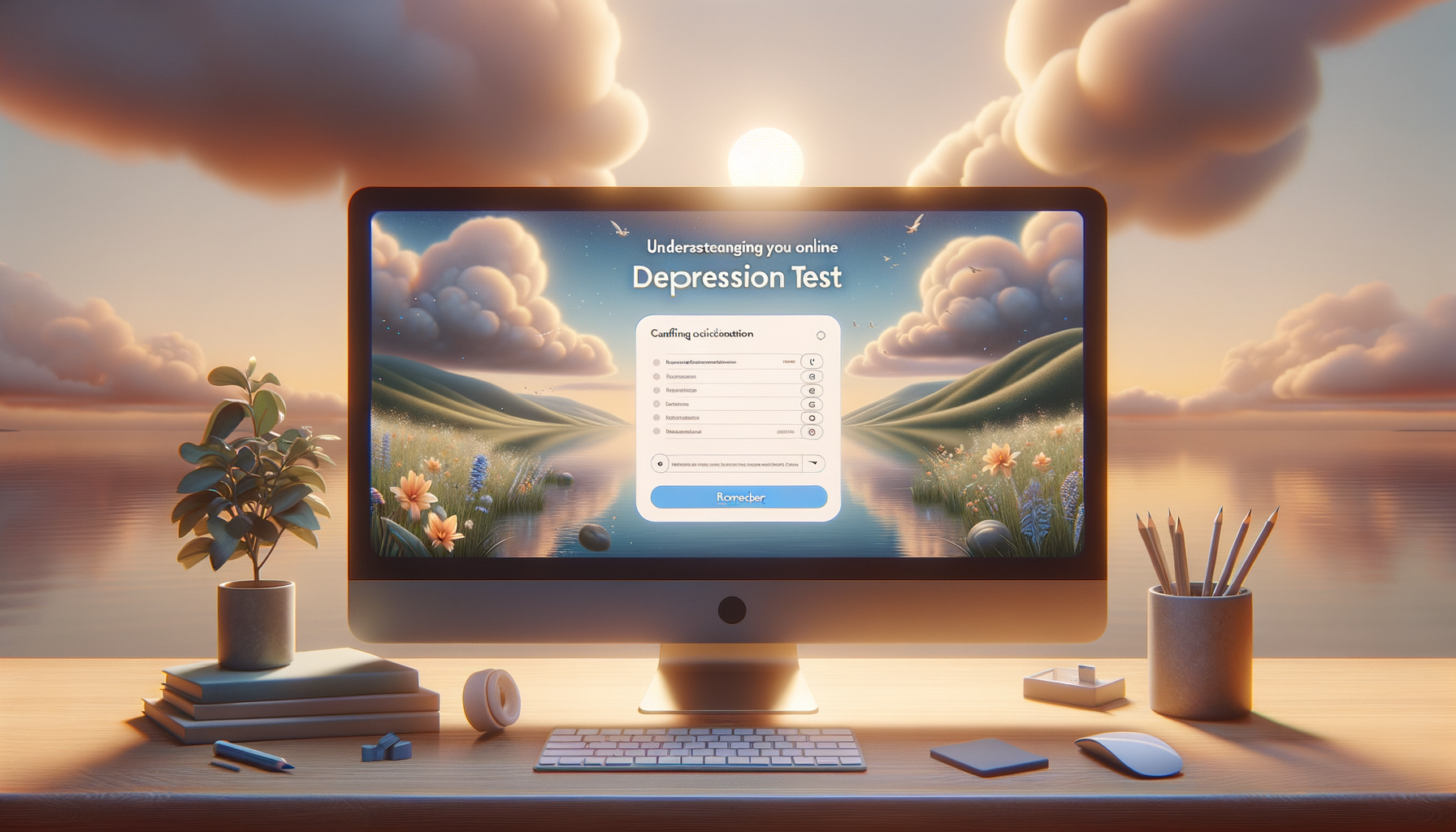Understanding the Importance of Depression Tests
Depression is a complex mental health condition that affects millions worldwide, manifesting through a range of emotional and physical symptoms. Recognizing these signs early can be crucial in managing the condition effectively. Depression tests serve as an initial step in this recognition process. These tests, often available online, provide a confidential means to gauge one’s mental state. While not a substitute for professional diagnosis, they offer valuable insights that can prompt further action.
Depression tests typically involve a series of questions that assess mood, behavior, and psychological patterns. The results can help individuals identify whether their feelings align with common symptoms of depression. These tests are particularly useful for those who may be hesitant to seek professional help immediately, offering a non-threatening way to begin understanding their mental health.
It is important to remember that a depression test is a tool rather than a definitive diagnosis. Results should be discussed with a healthcare provider to explore appropriate treatment options. This initial step can empower individuals to take charge of their mental health journey, highlighting the importance of early detection and intervention.
Exploring the Quick Depression Test
For those seeking a rapid assessment of their mental health, a quick depression test can be an effective solution. These tests are designed to provide immediate feedback, often taking only a few minutes to complete. The questions are straightforward, focusing on recent thoughts, feelings, and behaviors associated with depression.
The convenience of a quick depression test lies in its accessibility. Many platforms offer these tests free of charge, ensuring that anyone can access them regardless of their financial situation. They are also designed to be user-friendly, with results that are easy to interpret. However, while quick depression tests offer a snapshot of one’s mental state, they should not replace professional evaluation.
After taking a quick depression test, individuals are encouraged to reflect on their results and consider seeking further guidance. This could involve scheduling an appointment with a mental health professional or discussing concerns with a trusted individual. The key takeaway is that these tests can act as a catalyst for taking proactive steps towards mental well-being.
Treatment Options for Anxiety and Depression
Once depression or anxiety is identified, exploring treatment options becomes a priority. Treatment for anxiety and depression often involves a combination of therapies tailored to the individual’s needs. Common approaches include psychotherapy, medication, lifestyle changes, and holistic therapies.
Psychotherapy, or talk therapy, is a widely used method that helps individuals explore their thoughts and feelings in a safe environment. Cognitive-behavioral therapy (CBT) is particularly effective, focusing on changing negative thought patterns and behaviors. Medication, such as antidepressants or anti-anxiety drugs, can also play a crucial role in managing symptoms, though they are typically prescribed by a healthcare professional.
Beyond traditional treatments, lifestyle changes can significantly impact mental health. Regular exercise, a balanced diet, and adequate sleep are fundamental components of a healthy lifestyle that can alleviate symptoms of anxiety and depression. Additionally, holistic therapies like mindfulness, yoga, and meditation offer alternative ways to manage stress and improve emotional well-being.
Choosing the right treatment plan is a personal decision that should be made in consultation with a healthcare provider. By exploring various options, individuals can find a path that best supports their mental health journey.
The Role of Support Systems in Managing Mental Health
Support systems are invaluable when dealing with anxiety and depression. Family, friends, and support groups provide emotional backing and practical assistance, making the journey less daunting. Engaging with others who understand the challenges of mental health can foster a sense of community and belonging.
Support groups, whether in-person or online, offer a platform for sharing experiences and coping strategies. These groups can be particularly beneficial for those who feel isolated, providing a space where they can express themselves without judgment. Family and friends also play a critical role by offering empathy and encouragement. Open communication with loved ones can lead to better understanding and support.
Professional support is equally essential. Mental health professionals, including therapists and counselors, offer guidance and expertise that can significantly aid recovery. They can help individuals navigate their emotions, develop coping mechanisms, and implement effective treatment plans. Building a robust support system is a crucial step in managing mental health, providing strength and resilience in the face of challenges.
Conclusion: Taking the First Step Towards Mental Well-being
Recognizing the signs of depression and anxiety is the first step in taking control of one’s mental health. By utilizing tools like depression tests and seeking appropriate treatment, individuals can embark on a path towards healing and resilience. It’s important to remember that mental health is a journey, not a destination. Patience, self-compassion, and a willingness to seek help are key components of this journey.
For anyone feeling overwhelmed, remember that support is available. Whether through professional help, support groups, or loved ones, reaching out is a sign of strength. By taking proactive steps and embracing the support of others, individuals can navigate the complexities of mental health and work towards a brighter, healthier future.



Leave a Reply